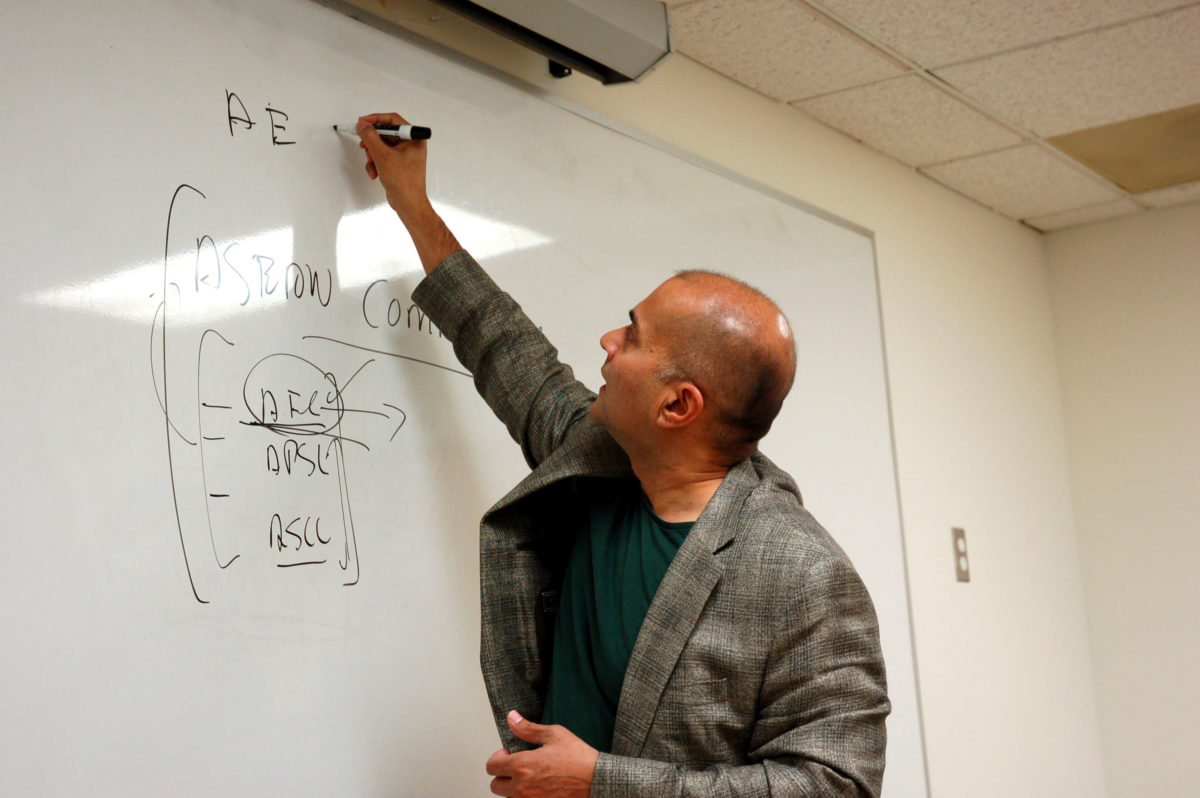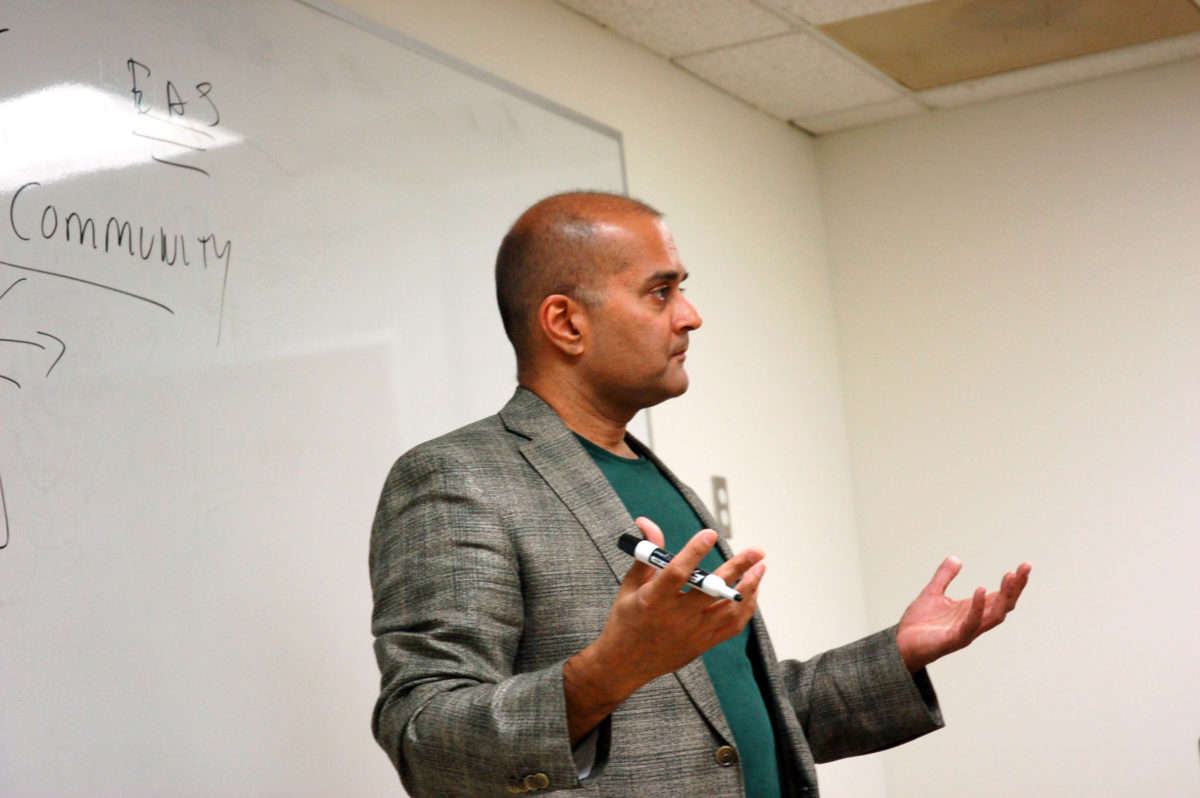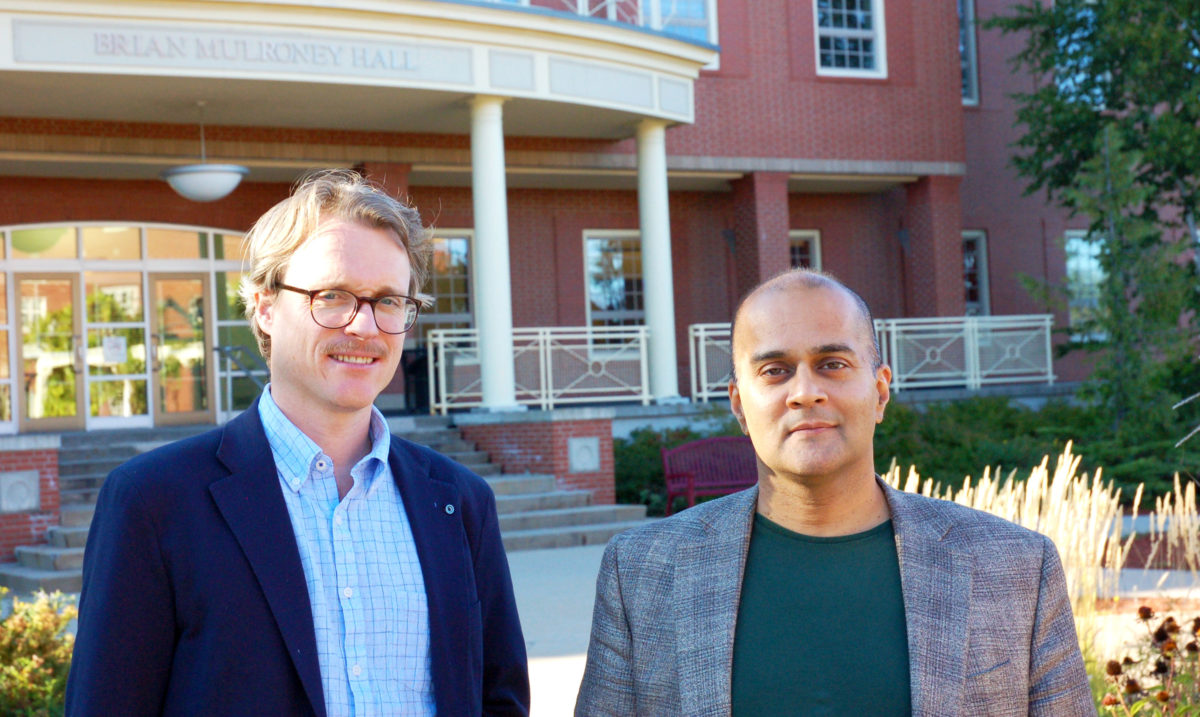A political science professor and sociology professor at St. Thomas University are trying to change how faculty share their research.
“It’s easy to get locked into a silo and be completely unaware of what the person in the office next to you is doing,” said political science professor Shaun Narine.
Narine and sociology professor Matthew Hayes created The Global Studies Seminars series. They said the purpose of the seminar series is to encourage faculty to learn and engage with each other about their global research.
“Despite the fact that this is a really small campus, faculty members don’t necessarily know what each other are doing, in terms of research work,” said Hayes.
Hayes was inspired by similar models in the past including Narine’s Global and International Studies Initiative conference in 2015.
“It’s an informal setting that enables colleagues, who might be fairly early on in their research work, to kind of share their work with other colleagues who can critique them, who can ask questions, who can help them . . . in order to move their work along.”

Although there is a research committee on Senate, Hayes said he wanted to provide an additional space for faculty to go more in-depth about their work.
“[The research committee on Senate is] an excellent way to get to know what research people are doing, but it’s not necessarily set up to help faculty who are doing research, to get to know what one another’s work is.”
Narine said Hayes approached him a few months ago about this project. He thought it would be beneficial to the university.
From there, they contacted faculty members and lined up speakers.
“It’s a way to kind of build a [research] network at the university,” said Narine.
He believes although faculty may not know what each other is working on, STU’s small size can help mend that gap.
“At a small university like St. Thomas, I think we have more of a capacity to overcome that kind of silo effect, and to actually do things that are interesting and interdisciplinary and productive, if we put a little bit of effort into it,” he said.
The series will include six to eight seminars over the year.
Narine kicked it off on Sept. 24 with his presentation “ASEAN and the Problem of Multilateralism in the Asia Pacific.”


In his talk he explained the history and structure of the Association of Southeast Asian Nations (ASEAN), the role it may have today and the fact that multilateralism, which is the idea of multiple states working together and cooperating, is “under attack” by the United States.
This term, other speakers will include Marcea Ingersoll and Fikru Gebrekidan. Ingersoll will present “Cosmopolitanism and International Education” on Oct. 22 and Gebrekidan will present “The Horn of Africa at a Crossroads: Ethnic Elites, Contested Past, and Uncertain Future,” on Nov. 19.
Although it has been mainly advertised to faculty, any upper-year students who are working on their own research are welcome to take part.
Hayes hopes this series spawns into other groups.
“I would love to collaborate with other faculty members who would like to do something similar on a different topic . . . but I thought this would be a nice way of getting things rolling.”

